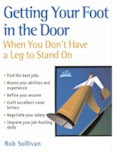Monday, March 17, 2008
Maximizing Employee Performance
Over the years, I have asked countless workshop participants, “How many of you have an ability you would enjoy contributing to this organization but haven’t found a way to do so?”
The company is not aware of the ability because it was developed at a different job or outside experience and the employee has not made it known.
In this case, helping employees develop an inventory of experiences will give employees and companies alike a more complete picture of the possibilities. As part of an ongoing employee development effort, this is also a great first step in opening the lines of communication.
The employee has a manager whose attitude is: "That is not your job."
This is truly unfortunate because this approach effectively crushes initiative--one of the three most important traits a company can find in an employee.
In theory, it sounds quite straightforward to have employees engaged in jobs at which they excel. In reality, this does not always happen.
There are two ways to view this issue. First, from the more positive and proactive standpoint, we will explore the opportunities companies have to help employees create an inventory of experiences and accomplishments. This way, we can create a more complete picture of each person’s skills, experiences, and preferences. With this knowledge, companies will have a better idea what people are best matched with particular projects.
The second way to impact employee development and productivity is to minimize or eliminate whatever makes a job draining or dissatisfying. While this will not be a focus of this particular post, it is important to acknowledge this aspect of the issue. More specifically, if you ignore the management, compensation, and team-related issues and look strictly at the job itself, there are at least three common causes for job dissatisfaction.
The person has been pigeon-holed into a particular position without regard to his or her preferences.
The person has been promoted to a position where they are no longer directly involved in the projects and experiences that made the job interesting and challenging in the first place.
The job was not a good fit in the first place.
Mistakes happen. When it is clear that a mistake has been made and a person has been put in the wrong position, the situation should be dealt with promptly and fairly. This is in everyone’s best interest.

.jpg)